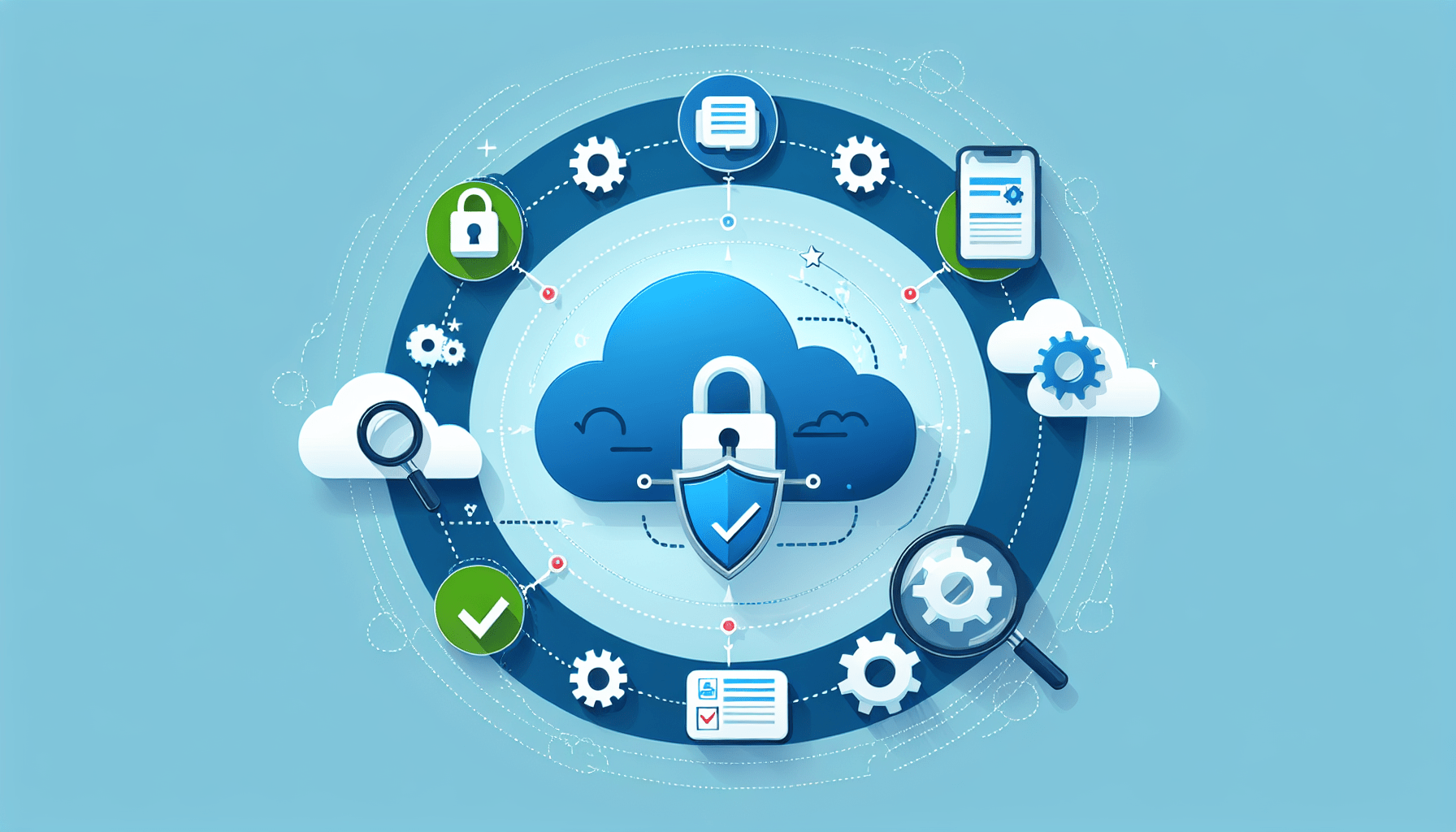In the realm of government cybersecurity, cloud security assessments pose unique challenges that must be carefully navigated. In this article, you will explore the specific intricacies involved in conducting cloud security assessments for government agencies, from addressing regulatory compliance to mitigating data breaches. By understanding the complexities of securing cloud environments in the public sector, you can implement effective solutions to safeguard sensitive information and uphold the trust of citizens.
Cloud Security Assessments For Government Agencies: Unique Challenges And Solutions
Have you ever wondered about the unique challenges that government agencies face when it comes to ensuring the security of their data in the cloud? In this article, we will explore the specific challenges that government agencies face when it comes to cloud security assessments and provide solutions to help mitigate these risks.
Understanding the Importance of Cloud Security Assessments
Cloud security assessments are crucial for government agencies to ensure the protection of sensitive data and information stored in the cloud. As more government agencies migrate their data and services to cloud-based platforms, the need for robust security measures has become paramount. By conducting regular cloud security assessments, government agencies can identify vulnerabilities, assess risks, and implement necessary controls to protect their data from cyber threats and attacks.
Unique Challenges Faced by Government Agencies
Government agencies face unique challenges when it comes to ensuring the security of their data in the cloud. These challenges include:
Compliance with Regulatory Requirements
Government agencies are subject to strict regulatory requirements and compliance standards, such as FedRAMP and FISMA, that govern the security of their data and systems. Ensuring compliance with these regulations can be challenging, particularly when using cloud services provided by third-party vendors. Government agencies must ensure that their cloud service providers meet the necessary security standards and comply with regulatory requirements to protect their data effectively.
Data Sovereignty and Privacy Concerns
Government agencies often deal with sensitive data that must be stored and processed within the jurisdiction of the country to comply with data sovereignty laws. When data is stored in the cloud, there is a risk that it may be transferred or stored in data centers located outside the country, raising concerns about data privacy and sovereignty. Government agencies must work with cloud service providers to ensure that data is stored and processed in compliance with applicable laws and regulations.
Insider Threats and Data Breaches
Insider threats pose a significant risk to government agencies, as malicious actors within the organization can exploit vulnerabilities to gain unauthorized access to sensitive data. Data breaches can have severe consequences for government agencies, including reputational damage, financial losses, and compromised national security. Government agencies must implement robust access controls, monitoring mechanisms, and employee training programs to mitigate the risk of insider threats and data breaches.
Lack of Visibility and Control
Government agencies often struggle with a lack of visibility and control over their data stored in the cloud. With data being dispersed across multiple cloud environments and services, it can be challenging for agencies to monitor and manage their data effectively. Governments must implement centralized visibility and control mechanisms to track data flows, enforce security policies, and detect and respond to security incidents in real-time.
Rapidly Evolving Threat Landscape
The threat landscape is constantly evolving, with cybercriminals developing sophisticated techniques to target government agencies and steal sensitive data. Government agencies must stay abreast of the latest cybersecurity threats and trends to protect their data effectively. Regular security assessments and threat intelligence sharing can help government agencies identify emerging threats and vulnerabilities and proactively address them to mitigate risks.

Solutions for Effective Cloud Security Assessments
To address the unique challenges faced by government agencies in securing their data in the cloud, the following solutions can be implemented:
Conduct Regular Security Assessments
Government agencies should conduct regular security assessments of their cloud environments to identify vulnerabilities, assess risks, and prioritize security controls. Security assessments should include penetration testing, vulnerability scanning, and security audits to identify gaps in security controls and address them effectively.
Implement Strong Access Controls
Government agencies should implement strong access controls to restrict access to sensitive data and systems only to authorized personnel. Access controls should include multi-factor authentication, role-based access controls, and least privilege principles to ensure that employees have the necessary permissions to perform their job functions securely.
Encrypt Data at Rest and in Transit
Government agencies should encrypt data at rest and in transit to protect sensitive information from unauthorized access and interception. Data encryption helps to secure data stored in the cloud and ensure that it remains confidential and integrity throughout its lifecycle. Government agencies should use encryption protocols such as AES and SSL/TLS to encrypt data effectively.
Monitor and Respond to Security Incidents
Government agencies should implement monitoring and incident response mechanisms to detect and respond to security incidents in real-time. Security monitoring tools can help agencies identify anomalous activities, suspicious behavior, and potential security incidents to take immediate action and mitigate risks. Incident response plans should outline procedures for containing security incidents, notifying relevant stakeholders, and restoring systems to normal operation.
Partner with Trusted Cloud Service Providers
Government agencies should partner with trusted cloud service providers that have a proven track record of security and compliance. Government agencies should conduct due diligence before selecting a cloud service provider, including reviewing security certifications, conducting security assessments, and assessing data protection capabilities. Cloud service providers should comply with industry security standards and regulatory requirements to ensure the security and privacy of government data.
Conclusion
In conclusion, cloud security assessments pose unique challenges for government agencies due to strict regulatory requirements, data sovereignty concerns, insider threats, lack of visibility and control, and evolving threat landscape. By understanding these challenges and implementing solutions such as regular security assessments, strong access controls, data encryption, monitoring, incident response, and partnering with trusted cloud service providers, government agencies can enhance the security of their data in the cloud and protect sensitive information from cyber threats and attacks. By prioritizing cloud security and adopting best practices, government agencies can ensure the confidentiality, integrity, and availability of their data in the cloud and maintain public trust in their ability to safeguard sensitive information.




